★Back to the Historical Materials
We have published this as historical material and testimony from the individuals involved. We are unable to respond to inquiries about the content.
What Did the Japan Red Army Do?
Kazue Yoshimura (Interview, December 3, 2000)
From the literary magazine Bungei Bessatsu [Complete Feature: The Red Army]
After the arrest of JRA leader Shigenobu, the reaction of the Arab world was “Shigenobu the Warrior,” as reported by all newspapers and mass media. I think the Japanese side needs to think a little more about the meaning of this.
After all, she was fighting alongside the Arab resistance against Israel’s invasion. It might be a poor comparison, but how would you feel if the U.S. arrested a Japanese Navy submarine commander or a kamikaze pilot captured during the Pearl Harbor attack and labeled them as “terrorists”?
The Lod Airport battle, said to be led by the PFLP, has been recounted by Osamu Maruoka in his book “What Is Public Security Worth?” (Shinsensha) and also by Kozo Okamoto in “The 20-Year History of the Japanese Red Army” (Talk Series). They clearly state that their fight began by attacking airport security guards. The guards, taken by surprise, retaliated, leading to many casualties inside the airport.
One of the two Japanese Red Army members who died at the time, Yasuyuki Yasuda, threw himself on a grenade that rebounded off a wall, sacrificing himself to prevent injuries to those around him. Another, Takeshi Okudaira, also self-detonated in an area where no one was present. While the media reports them as indiscriminately shooting at those in the airport, that is incorrect. They did express remorse for the unintended harm caused to innocent people due to their battle. I hope this aspect of their sentiment can be conveyed.
The so-called “Hague Incident” also had a former member, Y, who was recaptured and explicitly mentioned to the prosecution that it was under “PFLP instructions.” When Y was arrested in Paris, notes containing contact details were seized, and months later, that contact was bombed to death by Israel. This person had been a leader of the anti-Nazi resistance in Europe during the war. Europe at the time was the second front of the Middle Eastern conflict. Yet, no country condemned Mossad’s “terrorism.”
Reporting on the Palestinian issue is also unreliable, portraying it as a simple land or religious conflict in both newspapers and books. The Palestinian issue can be viewed as a Jewish problem, a contradiction born out of European history and shifted onto former colonies.
The history of America’s founding makes this clear: those persecuted in Europe moved to another continent, killed indigenous people, and took their land. It is an extension of that structure. Thus, it is not just a religious conflict; that was stirred up later. Moreover, the people who came from Europe to Israel claiming it as theirhomeland are descendants of the Khazars, who lived in the Caucasus or Central Asia and have no connection to the land of Palestine.
We were part of that anti-invasion resistance war.
In southern Lebanon, both sides frequently launched night raids. When our comrades joined one raid and returned, they found all who had stayed behind killed. One university student from a supportive country, who was on watch, failed to fire in fear, leading to the group being attacked while they were asleep.
Near Beirut, Phalangist snipers shot indiscriminately at vehicles entering the city, killing numerous civilians. In response, our comrades infiltrated the sniping point at night and planted a bomb. The next morning, explosions and screams were heard. Since then, the Phalangists no longer came to that spot. The Arab soldiers who carried out this operation with the Japanese Red Army felt great pride in fighting alongside us.
Some of our comrades also guided Japanese journalists around the air defense unit in southern Sidon. One of them took a photo that was used on the cover of the PFLP magazine, but soon after, the Israeli military discovered the location and launched a fierce air raid that wiped out the unit. Such incidents forced us to keep our activities vague.
Among our comrades were skilled marksmen who could hit all rounds into the hole made by the first bullet and masters of anti-tank rocket launchers. Some even served as military instructors for the Palestinian military. Today, their trainees are key figures in the Palestinian government. Israel, which once called the PLO “terrorists,” now negotiates with them. The PLO has started gaining recognition as an independent government. Judging the Japanese Red Army equates to judging the PLO and thus the Palestinian government. Or, would you label the first U.S. president, who led the guerrilla fight for independence from Britain, as “the top terrorist” in history books?
Breaking Free from the “New Left”
There’s a common misconception that the Japanese Red Army and the United Red Army are the same, mixing the scenes of the Lod battle with images of purges. While both stemmed from the same origins, some moved to North Korea, some to Palestine, and the main body merged with the Revolutionary Left, leading to internal purges. Thus, claiming that the Japanese Red Army and the United Red Army are the same is incorrect.
However, as individuals born from Japan’s New Left, the mindset of self-discipline seen in slogans like “Prepare powerful individuals” was ingrained. In that sense, we shared similar problems.
The question of how we overcame this lies in the fact that the theory of simultaneous global revolution held by the Communist League Red Army Faction disintegrated in the field. Those who went north dissolved in that region, while those who went to Palestine dissolved amidst the Arab culture and interactions with revolutionary groups from Europe and around the world who had gathered there. This disintegration happened quite rapidly.
The lessons we learned appear in what we have written, but they may be difficult to understand or not fully recognized. One reason is that the language we used had slightly different connotations compared to Japan.
For example, the word “people” often carried criticism in Japan as class-neutral. This stems from the theory that true revolution must come from the proletariat of key industries and that forming alliances with non-proletarian classes was problematic. However, we focused on how to expand our allies, not select them. The term “people” in our context might be closer in meaning to “masses” in Japanese.
Starting from Self-Criticism
The terms self-criticism and evaluation are also used by the New Left, just as the United Red Army did. However, if you’ve been to Europe or America, you know that people often blame others for their mistakes, refuse to acknowledge failures, and thus repeat them. In such an environment, we should first acknowledge our own faults. That is the essence of self-criticism.
The evaluation process is the same. Observing losses against Israel in battle, we aimed to identify the causes and adapt strategies during the confrontation. This approach emphasized looking at the facts objectively, not blaming others or self-justifying based on one’s effort. This evaluation method differed greatly from that of the United Red Army, whose failure shocked us and prompted us to develop our own way of assessing and learning from outcomes. Yet, even the reconstructed Red Army after the United Red Army’s defeat, which spoke of “self-criticism-unity,” split over issues related to evaluation, leading to fundamental questions about its purpose.
From that painful realization, we transmitted our method of evaluation back to Japan. It is presented in the book “If You Press Your Ear to the Ground, You Hear the Sounds of Japan” (Aki Shobo) as five formal evaluation principles. These were distilled after much discussion on what was necessary to improve and reflect on outcomes. It was created based on our field experiences and insights.
Thinking with a Realistic Perspective
We built everything from scratch. Unlike the conventional left, which would base their programs and regulations on pre-existing structures like those of the Russian Communist Party (Bolsheviks) with slight modifications, we created ours based on our actual experiences, including mistakes and the strategies we developed as a response. Therefore, while we would engage in theoretical debates about global awareness, we did not have a tendency to split simply because of minor differences in opinion, unlike the old New Left in Japan.
In the real world, the U.S.’s hegemony was expanding, and globalization was increasingly pressing the lives of ordinary people. It seemed as though the people’s side was beginning to fight back against this trend, suggesting that this was the era we were in, quite different from the ideological and strategy debates that the older New Left in Japan engaged in.
Traveling around the world, we noticed a question that arose from the discrepancy between studying Marx’s works and the practical realities – why such significant transformations occur despite sharing the same theoretical background. This recognition wasn’t just an intellectual critique but came from direct experience. The distortions in existing “socialist states” were not just about systems or policies but were influenced by the underlying cultures that ironically shaped the ideology itself.
The film group, symbolized by Masao Adachi, also joined the Japanese Red Army. Their approach was influenced by “Dadaism” – a “destruction for creation” mindset that was distinctly different from socialist realism. Added to this was the bright and casual Latin culture of the region. Moreover, in real battlefields, ordinary citizens joined organizations like the PLO to support their families. These combatants were also everyday people, blending with the diverse cultural mix.
We celebrated various occasions, such as farewell parties, birthday celebrations, and commemorations of the Lod battle. During breaks, we shared military rations under gas lights, drinking together until morning, though with some restraint. We broke ties with asceticism, which made us feel like rootless wanderers who, after traveling the world, blossomed uniquely – a bit of self-praise, if you will (laughs).
The socialism we sought was not about imposing a pre-made template but realizing freedom and democracy, which have yet to be fully achieved. We believe that pursuing these goals is a process that brings us closer to socialism. We do not draw a simple line between revolutionary socialism and reformist struggles.
Guns on the Battlefield, Politics at Home
Shigenobu felt strongly that even victories on the battlefield wouldn’t lead to social change in Japan, and she wanted to bring the struggle back home to Japan.
While Ayako Sono, who harbored Fujimori—the Peruvian dictator fleeing allegations and seeking asylum in Japan after ordering the killing of dozens of professors and students—remains free and unchallenged, those who helped an Arab hero are arrested for aiding escape. Japan, through such actions, has turned both Arab and Peruvian people against it.
Shigenobu likely fought to change such a Japan. We may have taken up arms on the battlefield, but at home, we wish to continue fighting through political expression.
Kazue Yoshimura (Interview, December 3, 2000)
Note:paragraphs and headings provided by Kousuke Souka.
This is a provisional translation by machine translation.


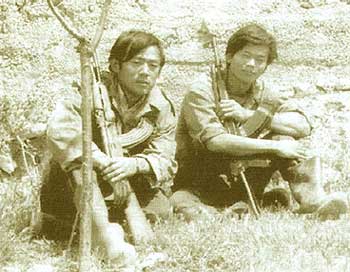
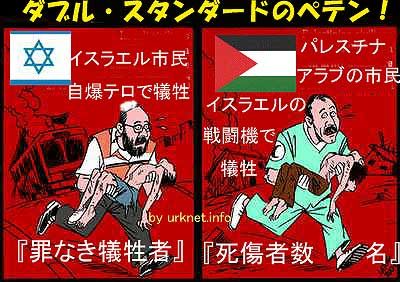



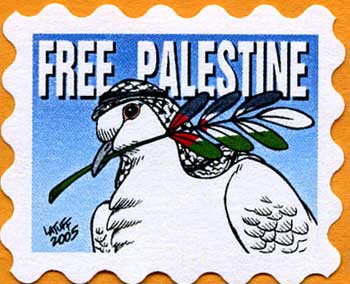

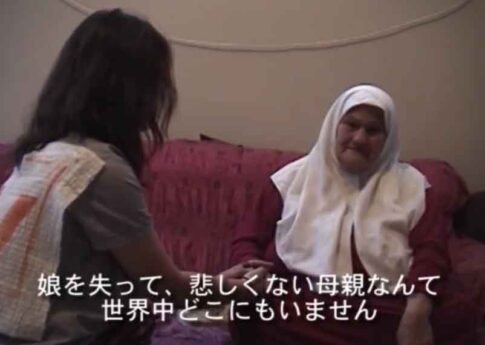
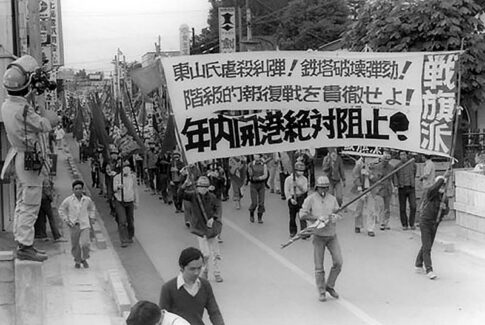
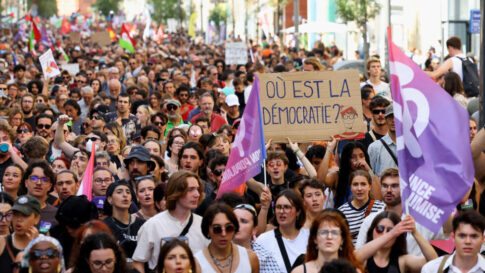
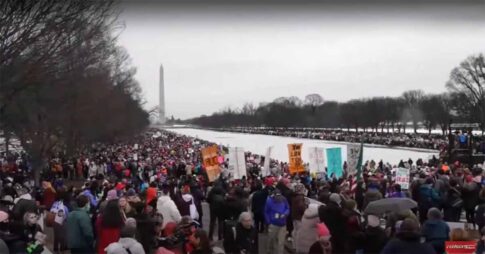
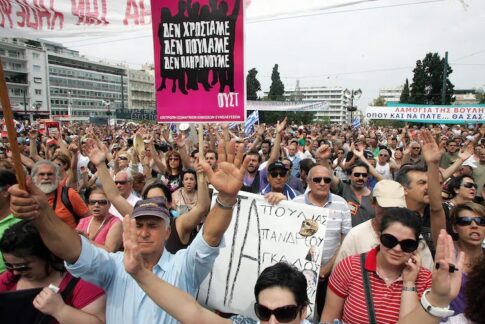

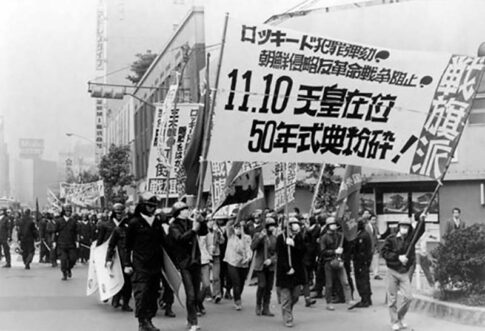


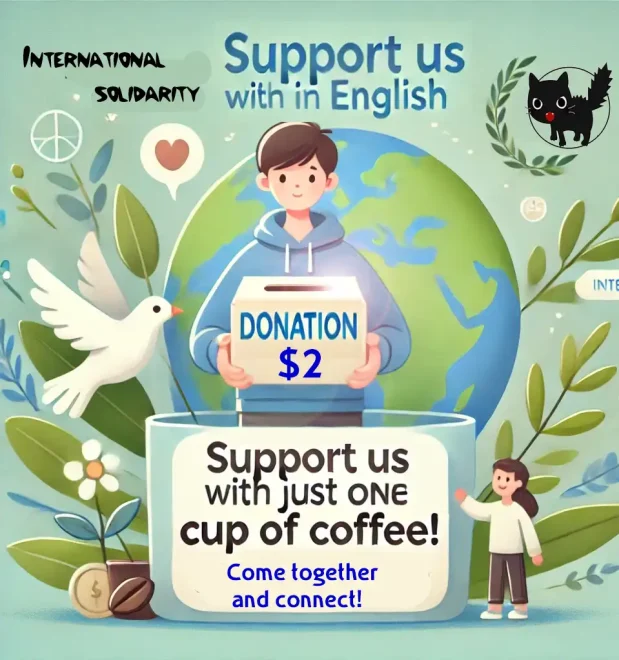 Donations are made in Japanese yen. 300 yen is approximately 2 USD.
Donations are made in Japanese yen. 300 yen is approximately 2 USD.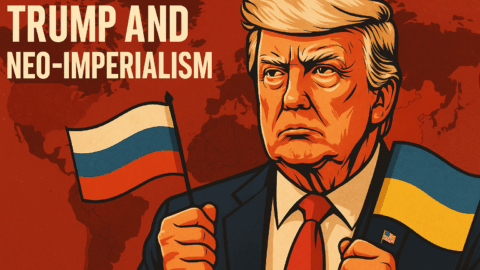
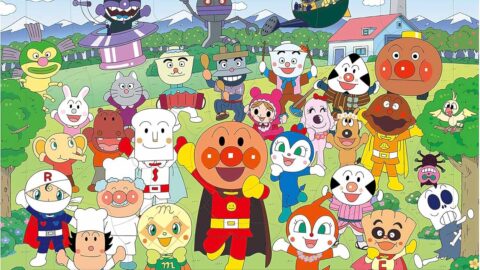
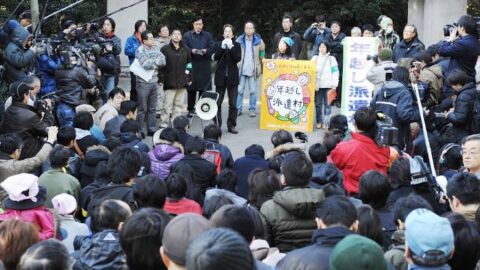
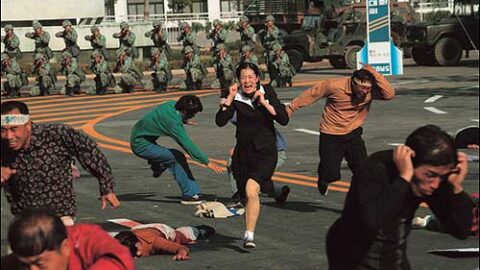
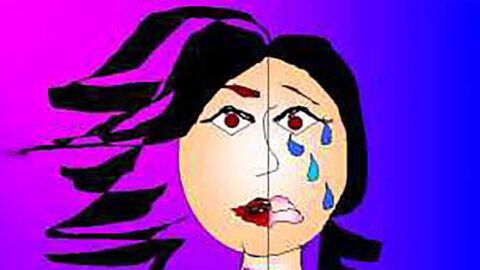

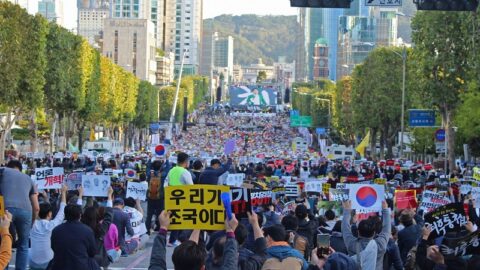
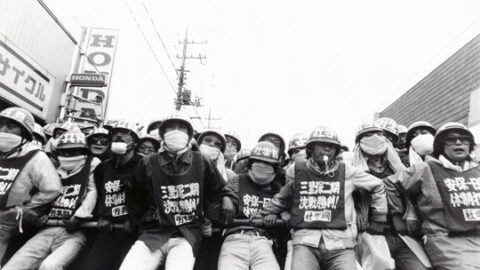

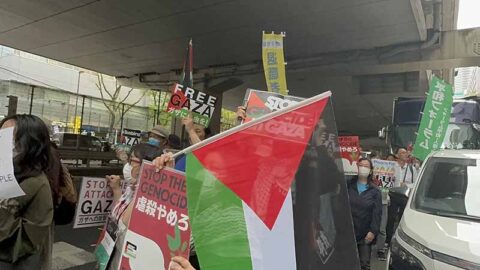
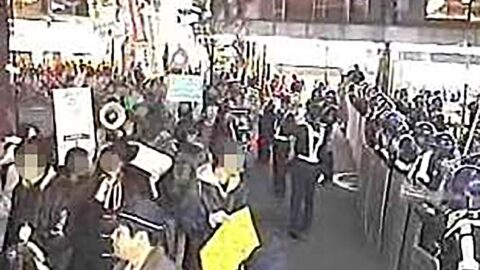
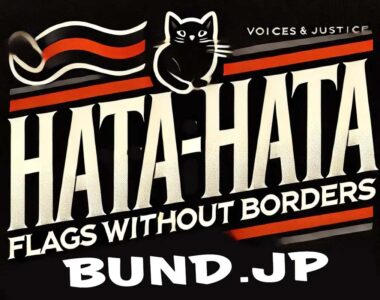

Leave a Reply